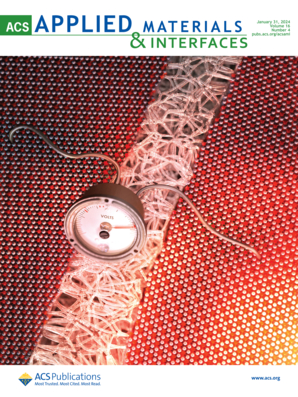The role of framing and effort in green nudging acceptance
IF 8.3
2区 材料科学
Q1 MATERIALS SCIENCE, MULTIDISCIPLINARY
引用次数: 1
Abstract
Whether nudges succeed in promoting pro-environmental behavior strongly depends on their public acceptance. Prior literature shows that the framing of nudges, i.e., whether they address the individual (personal framing) or the society (societal framing), is one critical factor in determining nudging acceptance. Since a personal framing highlights the costs individuals have to bear to comply, we hypothesize that people accept nudges more when addressing the general public rather than themselves personally. We expect the framing effect to be stronger for nudges that elicit high-effort behavior than low-effort behavior. Results of multilevel linear regression analyses in two online experiments (nStudy 1 = 294, nobs = 4,410; nStudy 2 = 565, nobs = 11,300) reveal an opposite pattern: People accept nudges more when personally (vs societally) framed. As predicted, nudges receive higher support when the promoted behavior is perceived as low effort. Exploratory path analysis in Study 2 shows that the perceived effectiveness of the nudge mediates the positive relation between personal framing and nudging acceptance. This project provides novel insights on facilitators and barriers in nudging acceptance and their implications for policy-making.框架和努力在接受绿色劝告中的作用
劝导能否成功促进亲环境行为在很大程度上取决于公众是否接受劝导。先前的文献表明,劝告的框架,即劝告是针对个人(个人框架)还是社会(社会框架),是决定劝告是否被接受的一个关键因素。由于个人框架强调了个人为遵守规定而必须承担的成本,我们假设,当针对公众而不是针对个人时,人们会更容易接受劝告。我们预计,与低强度行为相比,框架效应对高强度行为的影响更大。两个在线实验(nStudy 1 = 294,nobs = 4,410;nStudy 2 = 565,nobs = 11,300)的多层次线性回归分析结果显示了相反的模式:在个人(与社会)框架下,人们更容易接受劝告。正如所预测的那样,当被鼓励的行为被认为努力程度低时,鼓励会得到更多的支持。研究 2 中的探索性路径分析显示,人们对劝告有效性的感知介导了个人框架与劝告接受度之间的正相关关系。本项目为人们接受劝导的促进因素和障碍及其对政策制定的影响提供了新的见解。
本文章由计算机程序翻译,如有差异,请以英文原文为准。
求助全文
约1分钟内获得全文
求助全文
来源期刊

ACS Applied Materials & Interfaces
工程技术-材料科学:综合
CiteScore
16.00
自引率
6.30%
发文量
4978
审稿时长
1.8 months
期刊介绍:
ACS Applied Materials & Interfaces is a leading interdisciplinary journal that brings together chemists, engineers, physicists, and biologists to explore the development and utilization of newly-discovered materials and interfacial processes for specific applications. Our journal has experienced remarkable growth since its establishment in 2009, both in terms of the number of articles published and the impact of the research showcased. We are proud to foster a truly global community, with the majority of published articles originating from outside the United States, reflecting the rapid growth of applied research worldwide.
 求助内容:
求助内容: 应助结果提醒方式:
应助结果提醒方式:


